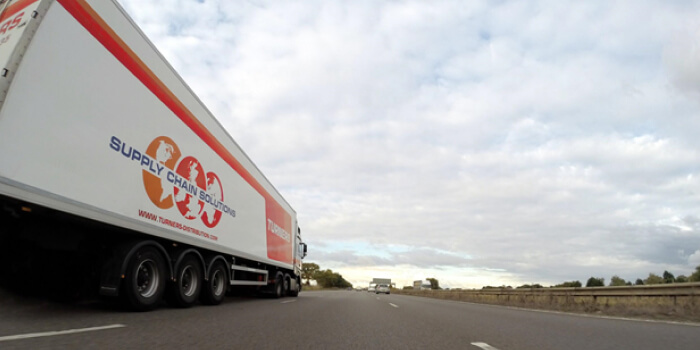Consumerism is the chief driver of today’s economy. In the second quarter of 2018 alone, consumer spending in the United States reached $13.9 trillion-boosting our GDP to the 2-3 percent healthy rates. It’s a good time for all businesses. It’s a great time for trucking and transport, the industry most businesses depend on. According to the American Trucking Association, this industry moves over 70% of US freight tonnage, including products, perishable food and drink, hospital supplies and medicines. The more that people spend money on goods, the more they need someone to get it to them.
But it’s not as easy as it sounds. According to the National Private Truck Council, here are some of the challenges faced by private fleets this year.

Whether it’s to hire more drivers, handle overhead costs, or other challenges, it can be difficult to make the most of the people’s needs and the economic trends without proper financing to sustain the business. Fortunately, there are several commercial vehicle financing options which are easier to apply for and receive capital than a bank loan.
When do you need Commercial Vehicle Financing?
You may need commercial vehicle financing for any of the three reasons:
- To buy a new/used commercial truck
- To lease a new/used truck
- To repair or upgrade a truck
The terms and rates on your finance option can vary based on these reasons.
Commercial Vehicle Financing Options:
Commercial Vehicle Financing: The best advantage of commercial vehicle financing is that the truck itself serves as collateral for the loan. For this reason, commercial vehicle financing does not have as strict requirements as traditional financing does. This means, even if you’re not exactly the best candidate for financing on paper, you can still qualify for a loan. The sticky part of commercial vehicle financing comes down to the term and rates. So although borrowers with poor credit scores and with old trucks can get a loan, they may have to put more money down and face interest rates that can be as high as 30%.
Important factors of commercial vehicle financing:
- Type of Truck: Since the truck serves as collateral for a loan or lease, it is very important to the lender. Before applying for financing, have a clear idea of the type of truck you’re interested in purchasing before approaching for financing. The first aspect of consideration is whether the truck is a vocational truck or long-haul truck. A vocational truck is any truck used within a single area like a garbage truck or a dump truck. A long-haul truck transports cargo and goods over hundreds of miles. As long-haul trucks can suffer more wear, it increases the risk factor for potential lenders. It also increases the possibility, that if your long-haul suddenly goes out of business, you may fall behind on your payments.
- Age of Truck: It goes without saying, that the older the truck, the more concerns your lender will have. Of course, if you’re new to business you won’t be able to afford a brand new truck (avg. price $80,000). Whether you’re leasing or buying a truck, it’s best to get one that’s less than 10 years old and has less than 600,000 miles on it.
- Truck Vendor: It gives the lender some level of confidence if you’re buying or leasing a truck from a reputable vendor. Most of the time, a lender would be more convinced if the truck is being bought or leased from a dealership because it will have a traceable paper trail and an assurance of its condition. But no matter where you’re getting it from, as long as the truck is in good condition, and you have the documents to prove it, it shouldn’t be a problem.
- Personal Credit Score: Although your personal credit score, isn’t critical for a commercial vehicle loan, a good credit score still proves to your lender that you’re a credible borrower who repays his loans back on time and in full. Even if you have a poor credit score (below 650), you can qualify but you may have to pay at higher rates or larger down payment.
Commercial Vehicle Financing Rates and Terms:
Commercial Vehicle Financing rates can be anywhere between 5%-30% with terms up to 10 years. The longer the term, the smaller your interest per month maybe, but the more interest it will gather over the years. For a borrower with a great credit score, commercial vehicle financing can fund up to 100% of the vehicle’s cost. However, this scenario is rare and you’ll mostly have to pay a down payment and get financing between 75%-90% of the total costs. You will also have to pay additional fees such as appraisal fees, application fees, and credit check fees which all significantly add to the cost of your loan.
- Traditional Bank Loan: Traditional loans are provided by institutions like banks and the government. They’re a generic option for anyone needing any type of business funding. These loans aren’t tailormade to any industry and their highly regulated processes can make them difficult to obtain. Traditional loans can be divided into three types, Bank loans, Government loans, and SBA loans. Traditional bank loans also require a good credit score and a winning business plan.

- Alternative Financing Option: An alternative financing option, like a short-term finance uses a quick and streamlined process to provide almost immediate cash. This option of funding can be tailor-made to the trucking industry. It meets the specific needs of each business-all while granting you capital within days. Additionally, most alternative financing options won’t claim your assets as collateral, not even the truck you need. They don’t require a great credit score or an other-worldly business plan; only a few months of bank statements. It’s one of the best options for industries like trucking which may face unexpected repairs or breakdown and need a quick source of financing to keep the business running.
Trucking and transport isn’t an easy industry. It is capital-intensive and requires meticulous planning to succeed. Put as much thought into your financing options as you would into choosing the trucks to get the best deal. Drive your business into a successful year ahead!







